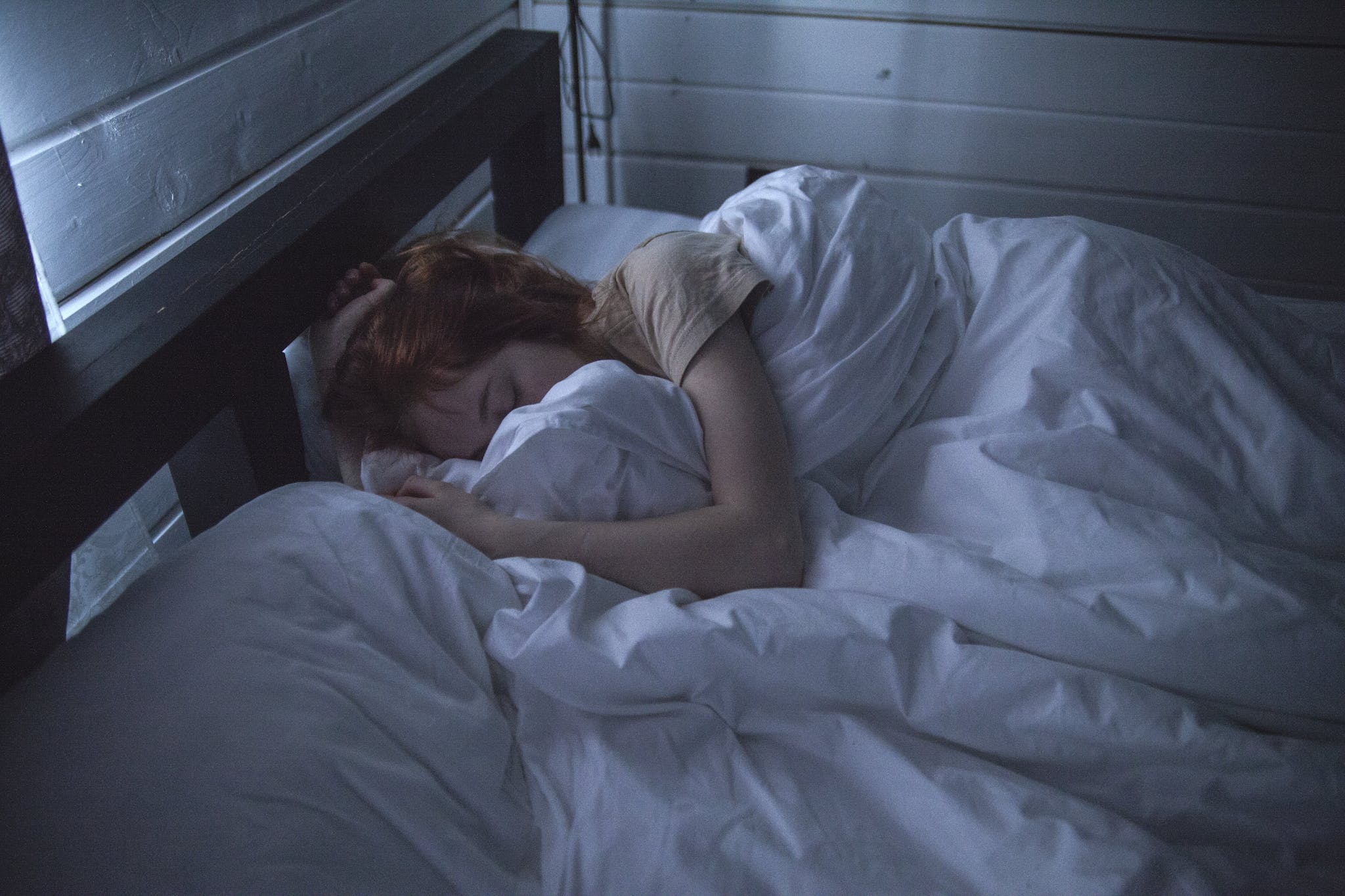Sleep and Mental Health: Unveiling the Connection for a Healthier Mind
In the busyness of our modern lives, it’s easy to overlook one of the most fundamental aspects of our well-being: sleep. We often prioritize work, social activities, and even late-night Netflix binges over a good night’s rest.
But what if I told you that your sleep patterns are heavily connected to your mental health? Behind a good night’s sleep lies a profound connection that can significantly impact your mental well-being.
There is a fascinating relationship between sleep and mental health, and understanding this connection can lead to a healthier mind.

The Neglected Importance of Sleep
We live in a society that often glorifies the hustle and celebrates those who seem to run on minimal sleep. But the truth is sleep is a fundamental biological need.
Just like food and water, our bodies require sleep to function optimally. Sleep is the body’s way of recharging, restoring, and renewing itself.

While the recommended amount of sleep varies from person to person, most adults need between 7-9 hours of quality sleep each night to maintain good health.
Unfortunately, many people fall short of this goal due to busy schedules, stress, or poor sleep habits.
The consequences of neglecting sleep are far-reaching. Some short-term effects include irritability, decreased focus, and impaired decision-making.
Over time, chronic sleep deprivation can lead to more serious health problems, such as obesity, diabetes, and cardiovascular diseases. It also has a major impact on our mental health.
The Link Between Sleep and Mental Health
The connection between sleep and mental health is undeniable. Many studies have shown that inadequate sleep can contribute to a range of mental health issues, from mild mood disturbances to severe disorders.
Let’s explore some of the most prominent ways in which sleep, and mental health, are intertwined.

1. Mood Disorders
Have you ever noticed how grumpy you become after a sleepless night? Sleep and mood are closely related, each feeding into the other.
A poor night’s sleep can lead to mood disorders, and individuals with mood disorders often experience disrupted sleep patterns.
Conditions like depression and anxiety are significantly influenced by sleep. A lack of sleep can exacerbate symptoms of these disorders, making it more challenging to manage the emotional rollercoaster they cause.
2. Stress and Anxiety
Stress is an unavoidable part of life, but when it becomes chronic, it can take a toll on our mental well-being. Sleep is like a natural stress buster.
It helps our bodies recover from the daily strain, both physically and mentally. When we don’t get enough sleep, our stress levels can skyrocket, making it harder to cope with life’s challenges.
Anxiety, too, is deeply related to sleep. Many people with anxiety disorders have difficulty falling asleep or staying asleep.
As a result, the lack of restorative sleep can further exacerbate anxiety symptoms, creating a vicious cycle.

3. Cognitive Function
Ever noticed how your cognitive abilities seem to decline after a sleepless night? Sleep plays a key role in cognitive functions like memory, attention, and problem-solving.
Insufficient sleep can harm your ability to think clearly and make sound decisions. This is why you may find it harder to concentrate and be productive after a night of poor sleep.
The Mechanism: How Sleep Affects Mental Health
So, how does sleep have such a profound influence on our mental health? During sleep, the brain goes through a series of cycles, including rapid eye movement (REM) and non-REM sleep. Each stage has a specific role in maintaining mental well-being.
During REM sleep, our brains process emotions. It’s like a mental housekeeping process, where the mind organizes and categorizes the day’s experiences.
Without sufficient REM sleep, emotional regulation can become impaired, leading to mood disturbances.
Non-REM sleep, on the other hand, is the restorative phase. It’s when the body repairs and regenerates tissues, including the brain.
Poor, non-REM sleep can impair cognitive function, memory, and mood regulation.
Sleep is deeply involved in the regulation of hormones and neurotransmitters. A lack of sleep can disrupt the balance of key chemicals like serotonin, dopamine, and cortisol, all of which play essential roles in our mental health.

Tips for Improving Sleep and Mental Health
Understanding the critical link between sleep and mental health, you may see why it’s essential to prioritize healthy sleep habits. Here are some tips to help you get better sleep and boost your mental well-being:
1. Stick to a Sleep Schedule
Try to go to bed and wake up at the same time every day, even on weekends. Consistency helps regulate your body’s internal clock, making it easier to fall asleep and wake up.
2. Create a Relaxing Bedtime Routine
Develop a calming bedtime routine to signal to your body that it’s time to wind down. Activities like reading a book, taking a warm bath, or practicing relaxation exercises can be incredibly helpful.
3. Make Your Sleep Environment Comfortable
Ensure your bedroom is conducive to sleep. This means a comfortable mattress and pillows, a cool room temperature, and minimal noise and light. Invest in blackout curtains if needed.
4. Limit Screen Time
The blue light emitted by phones, tablets, and computers can interfere with your ability to fall asleep. Try to avoid screens for at least an hour before bedtime. There are also glasses that can help with some of the effects of blue light.
5. Be Mindful of Diet and Exercise
A balanced diet and regular physical activity can promote better sleep. Avoid heavy meals, caffeine, and alcohol close to bedtime, as they can disrupt your sleep.
6. Manage Stress
Stress and sleep have a reciprocal relationship, but it’s possible to break the cycle. Consider stress management techniques such as meditation, deep breathing, or yoga to help you relax before bedtime.
7. Seek Professional Help
If you continue to struggle with sleep or mental health issues, it’s essential to consult a healthcare professional.
They can provide guidance and treatment options tailored to your specific needs.
As we uncover the profound connection between sleep and mental health, it’s clear that prioritizing sleep is not just about feeling refreshed; it’s about maintaining our mental well-being.
Adequate, restful sleep is critical to maintaining a healthy mind and body.
In a world that often glorifies sleepless nights and constant productivity, it’s important to recognize that taking care of our mental health requires a good night’s sleep.
By understanding and respecting this connection, we can move towards a healthier, more balanced life.So, the next time you’re tempted to trade sleep for one more hour of work or entertainment, remember the profound connection between sleep and mental health.
Your mind and body will thank you for it.
April Gilbreath
April Gilbreath has a degree in integrated community services (social work) and is returning in the fall for a second degree to pursue her Bachelor’s in Integrated Community Services. She has researched mental health for personal edification and has been to therapy and would love to share what she has learned with others.








Love this article! Great suggestions and even though I know sleep is important I never thought of all this at one time. No wonder I’m a mess some days. I feel like so many others the screen time is the hardest for me to put away before bed. I am going to try to change my night routine and see how it works for me. Thank you for this article, it’s very needed in this time and day we’re in!
Thank you! I feel the same way, I think that most of us have the screen time issue.
I personally always remember to text people back, send emails and play my games before I go to bed but I found if I stop them and just lay down and think (or count aheep) , I may lay there for quite a while but ultimately the sleep is better and I fall asleep harder than when my phone is right with me.
My glasses also have the blue screen protection stuff and it has been a game changer!